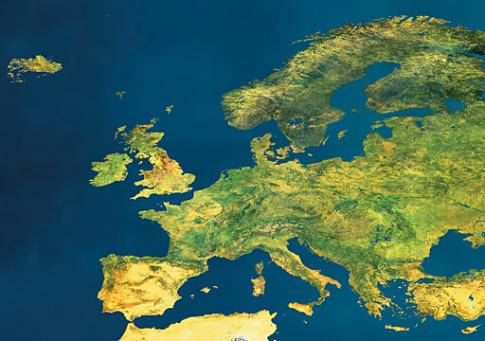The European Commission’s Taxing New Idea

The European Commission is proposing that EU tax policies be subjected to qualified-majority voting just when the balance of power in the bloc ...
Otmar Issing*
The European Commission is proposing that EU tax policies be subjected to qualified-majority voting just when the balance of power in the bloc is about to shift decidedly to the southern member states. That would set the stage for a rebellion among northern members, which will have effectively lost fiscal sovereignty.
FRANKFURT – Under the Treaty of Lisbon, in effect since 2009, the European Union became a more agile and effective operator, because EU policies across a range of issues were now to be decided by qualified-majority voting instead of unanimity.
But as recent efforts to allocate refugees within the EU show, in some cases, particularly where fundamental issues of national sovereignty are involved, outvoted member states are unprepared or unwilling to implement collective decisions. Nonetheless, the European Commission is now wading into yet another domain where fundamental issues of sovereignty are at stake.
For many years, some EU member states have refused to cooperate fully in the fight against tax evasion and avoidance. And because EU tax policies still require unanimity, each country has a veto. It seems only natural, therefore, that the EU would want to introduce qualified-majority voting here, too. Under a new proposal from Pierre Moscovici, the EU Commissioner for Economic and Financial Affairs, Taxation, and Customs, if 55% of member states representing at least 65% of the EU population were to vote in favor of a new tax policy, it would pass.
At first glance, the situation certainly does seem to merit a strengthening of the EU’s hand on tax matters, so that it can finally correct a glaring shortcoming. Yet once qualified-majority voting has been introduced as a means of reining in tax evasion and avoidance, it will also determine all future tax policies.
This is not merely an assumption. The Commission’s stated objective is to apply qualified-majority voting to all tax-policy initiatives that are “necessary for the Single Market and for fair and competitive taxation.” Such a vague formulation opens the door to all manner of interventions.
As a further justification of his proposal, Moscovici also points to the potential to secure additional EU revenues through new financial-transaction and digital taxes – both of which his proposal explicitly mentions as possible policy options. It remains to be seen whether these special taxes will meet their proponents’ expectations. But even if they fail, previous experience suggests that the Commission will nonetheless use the new voting rule to secure ever-higher tax revenues “for Europe” through whatever means available.
As it happens, the United Kingdom’s impending departure from the bloc will dramatically alter the conditions for achieving a qualified majority on tax matters. The UK is among the northern member states that, together, account for 39% of the EU population and tend to resist protectionist measures, tax increases, and transfers to highly indebted countries. By comparison, the Mediterranean countries that generally favor transfers and taxes currently account for 38% of the EU population.
This is as it should be. Under the Treaty of Lisbon, the conditions for a qualified majority have been balanced in such a way as to give both the “North” and the “South” a blocking minority of (at least) 35% of the EU population. As long as the northern member states were aligned, they could prevent any initiatives that were against their interests. After Brexit, however, the North’s share of the population will fall to 30%, while the South’s share will rise to 43%. In other words, the North will no longer have a veto. Making matters worse, following the upcoming election in May, a similar southward shift is also imminent in the European Parliament, which would also gain a greater say in tax-policy questions if the Commission’s proposals are enacted.
The Commission’s proposal should be seen for what it is: an attempt to undermine the fiscal competence of sovereign states through a seemingly harmless back door. With the upcoming rebalancing of power within the EU clear for all to see, one need not be a prophet to predict higher taxes in the future. Even if the northern member states’ national parliaments are uniformly opposed to tax increases, they will have no way to block them. And, sooner or later, the backlash against this loss of sovereignty and wholesale soaking of the northern EU countries will be directed against the EU itself.
In light of these ramifications, the Commission’s proposal to subject tax policies to qualified-majority voting not only runs counter to the already-fraught efforts to achieve an “ever closer union,” but also jeopardizes the successful integration that has occurred to date. Apparently, the Commission has learned very little from the bruising Brexit debate of the past two and a half years. With its latest tone-deaf initiative, it continues to add grist to the Euroskeptics’ mill. /project-syndicate
* Otmar Issing, former Chief Economist and Member of the Board of the European Central Bank, is President of the Center for Financial Studies at Goethe University, Frankfurt, and the author of The Birth of the Euro.




 del.icio.us
del.icio.us Digg
Digg

Post your comment